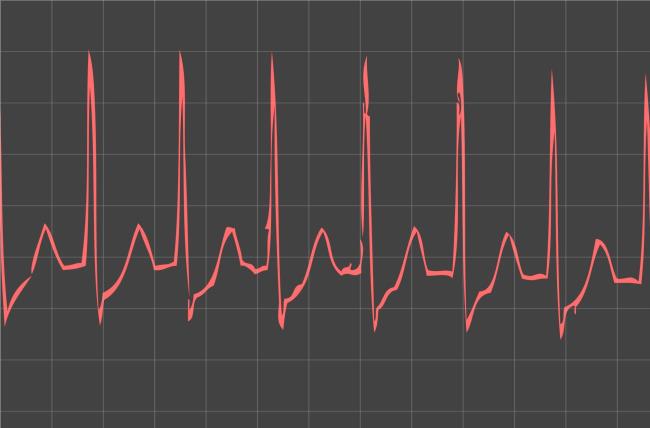People exhibiting signs such as shortness of breath and chest pain should not ignore the physiological changes and immediately seek medical attention. The individual is at a higher risk of suffering from a heart condition that can affect the functioning of the vital organs. Therefore, the patient should discuss their symptoms with a competent and reliable cardiologist in Karachi. The specialist will conduct relevant tests to diagnose the illness. Timely diagnosis allows the patient to heal without further complications.
What are the Symptoms of Supraventricular Tachycardia?
The symptoms of Supraventricular Tachycardia are:
- The individual feels a rapid heartbeat. The heart beats more than a hundred times in a minute.
- The individual suffers from recurring episodes of unconsciousness.
- The patient suffered from shortness of breath and chest pain, which may worsen with time.
- The person remains lethargic most of the time.
- The individual feels lightheaded and dizzy most of the time.
- The individual noticed excessive sweating without engaging in physical activities.
What causes an individual to suffer from Supraventricular Tachycardia?
The individual suffers from the condition as some factors affect thecardiac electrical conduction system. The risk factors correlating to supraventricular tachycardia include:
- Some people are born with the disease. The abnormality in the electrical pathways affects the functioning of the heart.
- Individuals who remain under stress are at a higher risk of suffering from heart disease. People who struggle to maintain healthy lifestyles by creating a balance in personal, professional, and academic life are at a higher risk of suffering from supraventricular tachycardia.
- People who consume cocaine and methamphetamines are more likely to suffer from a heart-related disease, including supraventricular tachycardia.
- Smoking and alcohol dependence increases the risk of heart disease.
- People who consume caffeine multiple times daily are more likely to suffer from supraventricular tachycardia.
- Other medical conditions including; thyroid disorder, can affect the electrical pathways causing supraventricular tachycardia.
What preventative measures help minimize the probability of suffering from Supraventricular Tachycardia?
The preventative measures include:
- Individuals born with heart disease should monitor their bodily changes and seek medical help to prevent complications.
- People should avoid consuming caffeine if they experience changes in their heartbeat.
- People must understand the impact of smoking and alcohol dependence on their mental and physical health. The awareness will help the person eradicate these harmful habits from their lifestyle.
- People must eradicate unhealthy ways to cope with anxiety, such as substance abuse. It is essential to become aware of the effects of consuming cocaine or methamphetamine on physical health and seek professional help.
What are the complications associated with Supraventricular Tachycardia?
The complications associated with supraventricular tachycardia are:
- The individual is at a higher risk of suffering from Tachycardia mediated cardiomyopathy.
- People should seek medical attention to prevent heart failure, which can become the cause of death.
What tests help diagnose an individual with Supraventricular Tachycardia?
The tests that assist in diagnosing an individual with supraventricular tachycardia are:
- Physical Examination and Family History: The specialist will ask the patient about prior medical conditions, lifestyle, and family history. It helps detect the cause of the disease. Also, the specialist will check the pulse and the presence of heart murmurs. It helps to detect abnormalities in heart functioning.
- Electrocardiogram: The test helps measure the electrical activity of the heart.
- Echocardiogram: It is an imaging test that utilizes sound waves to monitor the abnormality in the heart’s functioning.
What are the effective treatments for Supraventricular Tachycardia?
The medication and procedures that are proven effective in managing the symptoms of supraventricular tachycardia are:
- The use of Anti-Arrhythmic drugs to normalize the heart rhythm.
- The use of beta-blocker medication helps normalize the heart rhythm.
- Electrical cardioversion is a procedure that utilizes current to reset the heart rhythm
- Catheter ablation is a surgical procedure that aims to destroy a small part of the heart, causing the symptoms.
The individual diagnosed with supraventricular tachycardia must consult a competent specialist at Fauji Foundation Hospital for guidance regarding the most effective and latest treatment plan for smooth recovery.





